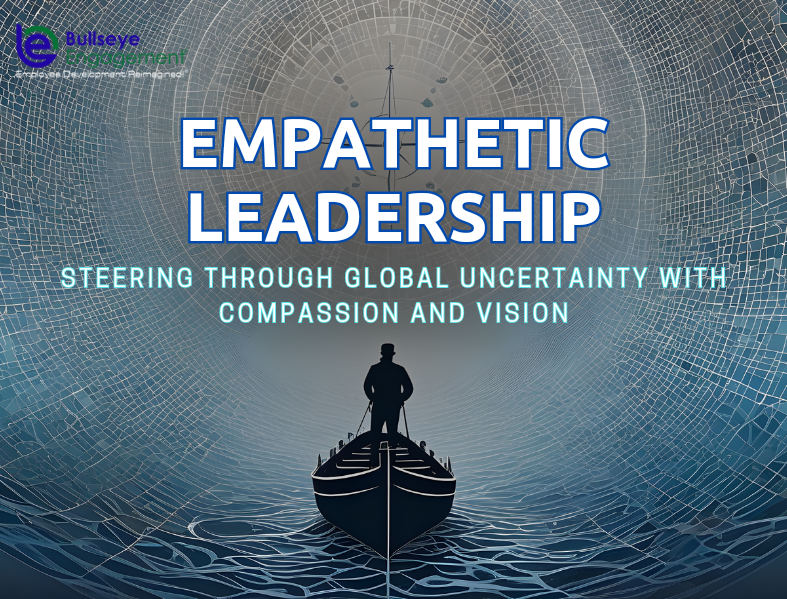In a world where headlines are dominated by events that stir emotions and demand attention, the need for empathetic leadership has never been more pronounced. The external environment—laden with political, social, and economic upheavals—impacts not just the market dynamics but also the emotional landscape of the workforce. A leader’s role, thus, extends beyond traditional management to become a beacon of understanding and support.
The Crucial Intersection of Global Events and Leadership
Empathy in leadership isn’t confined to the internal workings of an organization. It also encompasses a broader understanding of how external realities affect team members’ lives. Leaders today are tasked with the delicate balance of acknowledging global events without taking sides, ensuring that every member feels respected and heard, regardless of their personal views.
Navigating Tumultuous Waters with Empathy
Global incidents, whether conflicts, natural disasters, or economic crises, can leave team members feeling anxious or distracted. Empathetic leaders recognize these undercurrents and navigate them with care. By doing so, they don’t just address the immediate emotional needs of their teams but also build a foundation of trust that can weather any storm.
Cultivate an Environment of Psychological Safety:
Create a space where employees feel secure enough to express concerns or emotions related to global events without fear of judgment.
Encourage Open Dialogue:
Facilitate discussions that allow team members to process how global events affect them personally and professionally, fostering a supportive team environment.
Provide Flexible Support:
Acknowledge that global events can impact people in various ways and offer support that caters to individual needs, such as flexible hours or mental health resources.
Lead with Emotional Intelligence:
Use emotional intelligence to read the room, understand unspoken tensions, and address them proactively.
The Ripple Effect of Empathetic Leadership
When leaders address the human side of global events, they don’t just mitigate the immediate emotional impact on their teams; they also foster long-term loyalty and commitment. Employees remember how they were supported during tough times, and this memory often translates into increased engagement and dedication to the organization’s vision and goals.
Empathetic Leadership in Practice
Imagine a scenario where a team is emotionally charged due to a recent global event. An empathetic leader might open the next team meeting with a moment of reflection, acknowledging the event without bias and offering support to anyone who might be affected. This gesture can go a long way in making employees feel valued and understood.
Conclusion
Leadership today is as much about steering the ship towards corporate goals as it is about understanding the waters in which that ship sails. Empathetic leaders, with their fingers on the pulse of the global climate and their eyes on the horizon of their organizational objectives, are the captains who can navigate these times with wisdom and humanity. They are the ones who can unite a workforce under a banner of shared compassion and common purpose, creating an unbreakable chain of solidarity that extends from the individual to the global community.

















